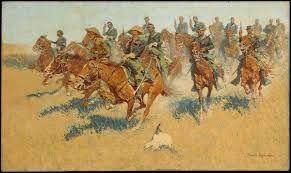Panic Creates Poor Decisions When Stress Takes Over
What’s your situational stress tree look like? Are there
particular events or people that cause that panic in you? It might be troubleshooting
wonky software while people wait, or trying to unclog a backed up drain while
the water rises. Making decisions in desperate, time sensitive events is a
learned skill.
Situation
My gas grill caught on fire while cooking dinner earlier. I
just bought a new propane tank and hooked up the hose. I turned on the lever
and clicked the ignite button. The rack heated up quickly and I tossed the
burgers and pork chops on. After 10 minutes I opened the lid to check on them. Dripping
grease from the hamburger was creating a real flame up. I slid the patties back
just off the flame. On the second try, I noticed the fire seemed even more out
of control. That’s when I tried to turn the regulator nob down and noticed it
wasn’t connected to the lever. The heat from the fire had melted the nob down.
As I glanced down at the tank and noticed the fire climbing
up the hose. I ran quickly into the yard and unscrewed the garden hose from the
sprinkler. I just happened to be watering the grass then as well. I sprayed the
fire with water hoping to put it out. But the grill hose was being fed a stream
of gas from the tank. The water did nothing. I was reluctant to shut off the
valve and risk get burned from the fire escaping through a hole in the hose. I
managed to grab the nob and turn it. Nothing happened. At this point I started
praying. I kept at it with the water and eventually the fire died down enough, where
I could disconnect the hose from the propane tank.
I don’t think I took a
breath until the flames were completely gone. What a mess.
Reflection
My meal was mostly done by that point. I left the burgers
and pork chops sitting on the grill with the lid closed for 5 more minutes. I
was more concerned with the pork chops than the burgers. They were pushed all
the way back to the lower heat so I knew they needed more time. After the
fiasco I reconnected the garden hose to the sprinkler and watched it traverse
slowly over the lawn. I should have been pissed about the loss of a grill but
all I could think about was how grateful I was that the conflagration didn’t
spread. My brother gave me the grill after he moved. My dad gave it to him a
few years ago. It’s hardly a new piece of equipment, it’s seen work if you know
what I mean. Besides I didn’t pay for it.
The best course of action would’ve been to disconnect the
tank from the hose instead of turning the nob off. When it’s disconnected the
gas stops flowing. But I didn’t think of it at the time. When panic sets in you
rarely do the correct thing. I didn’t want to get my hands anywhere near the
fire. Water puts out fire. In my quick thinking brain I grabbed the garden hose
and sprayed, forgetting about the gas feeding it. There was a better way to fix
it, but my mind was racing. Panic creates a scrambled picture of what to do.
It’s fear, overwhelming our mind right when we really need to think clearly.
Most people can think of some situation in life where panic lead to an unmitigated
disaster.
Recognition
From escalating road rage incidents to grill fires that
catch you off guard. On more than one occasion I let stress cloud my mind, in
little league. As a pitcher, I remember loading the bases after a few balls and
a string of smart hitters. The next kid hit a bomb, and so did the next. Every
pitcher knows that feeling of humiliation when a guy goes deep on your slow
moving change up. Panic ensured that I wouldn’t be able to get anyone out on that
particular inning. The stress created doubt. Doubt led to poor, quick decisions
made in anger.
I’ve always had a lot of respect for anyone who could deal
with situational stress without falling apart. High performing athletes have
this. I used to think it was innate, the same way others become an emotional wreck
with the slightest bit of stress. Some of it probably is innate, but learning
how to overcome in a tense situation is a skill too. Like most situations in
life, the more experience you have with stress the easier it gets. The stakes
might increase with the responsibility, but if you learn how to handle it,
you’ll always win.
I’m the type who cares too much about what others think. It
plays into my decision making tree in some way. Like, if I make this quick
decision and it’s the wrong thing, I’ll look stupid. I hate to look stupid.
Everyone hates to look stupid but, some dwell on the criticism more than
others. I’m afraid I do. When situational stress hits my mind spins through a
quick series of decisions without landing on one. That way I haven’t committed to
any of them. If you’ve ever seen that giant vertical wheel the contestants spin
on the price is right, it’s a bit like that. Except instead of the wheel,
eventually, finding a price, mine just keeps going.
Conclusion
In recent years I’ve tried to improve this panic decision
making. Prayer is the first thing for me. Actually, being hyper aware is the
first part. But when I consciously slow down my response, and ignore reactions
from others I can right the ship, er put out the fire. We all react to different
stressors in different ways, but if you work on your responses you won’t be a
slave to them.






